
David Galindo is the creator of Cook, Serve, Delicious!, who is hard at work on the upcoming Cook, Serve, Delicious! 3?! coming to Steam Early Access in January! You can find him on Twitter @chubigans. Please forward all delicious food pics to him for research purposes.
Howdy! What a year for games huh? I personally find my time split between good ol’ video games and tabletop gaming, so I’ve mixed them both up for my top ten list! I hope you enjoy it and a big huge thanks again to Giant Bomb and Alex Navarro for being the best people ever.
A quick look at the games that just barely missed the list:
Runners Up: Hypnospace Outlaw, Horrified, Code 777, Subnautica
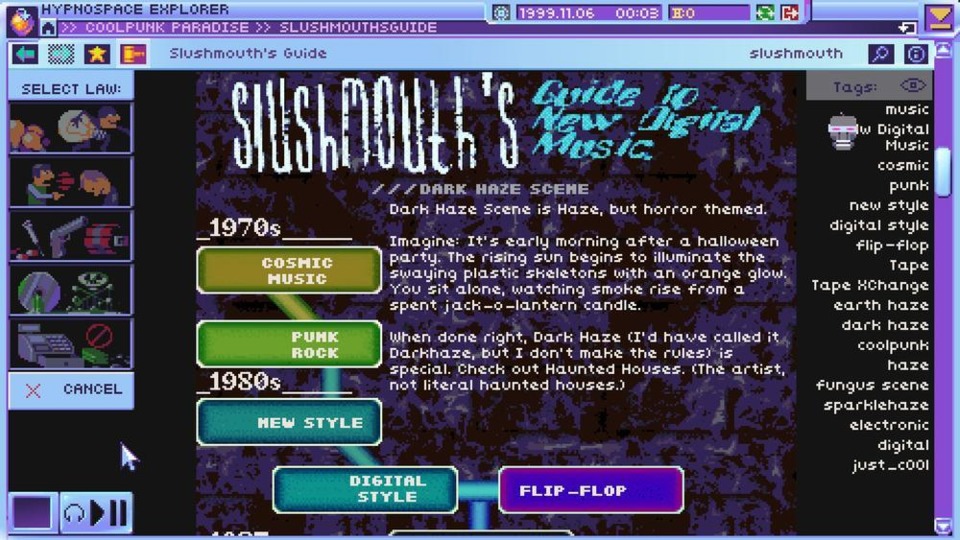
Hypnospace Outlaw is such a fun throwback to the internet days of old while carving out a unique world of its own. It has the right amount of weird and fun that makes it an unforgettable experience that unfortunately got too difficult for me towards the end.
Horrified is a tabletop game that has no right being this good. A mix of Pandemic and Spirit Island, but in a more simplified format that makes it more accessible for everyone. Your team is tasked on taking down classic Universal Studio’s monsters, and its surprisingly great.
On the other side of complexity, Code 777 is a simple premise: guess the three numbers in front of you that are visible to everyone but yourself using a series of predetermined questions. The thrill is high when you guess correctly, but the agony of missing your guess and having to start over is heartbreaking.
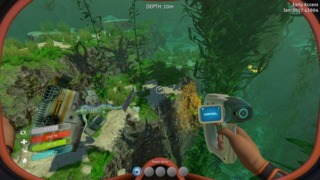
Finally, Subnautica is not a genre I’m overly fond of (crafting/exploring) but I’m a sucker for underwater life and this game has it in spades. There’s something inherently cool about building your own underwater base.
And now for my top 10!
10. Fit for a King
I’m completely unfamiliar to the Amiga text adventure games of old. My oldest PC game memory is Jill of the Jungle, which I found at a garage sale alongside other floppy disk games when I was young. The nice lady gave me a good deal on a ziplock full of them. “My grandson is part of the team that made this game!” she said, holding up a floppy disk of Duke Nukem. I'd never heard of it at the time.

The biggest reason I was willing to jump into a wholly unfamiliar genre with Fit for a King was because of the talented devs (Tanya X. Short and Brent Ellison) and their team of contributors involved--Kitfox Games is quickly becoming my favorite indie developer/publisher. While I can’t speak to the strength of the game comparatively to others in its genre, I can tell you that I had a blast playing it.
The objective--create a feast for your rival in the hopes of inspiring immense jealousy from him--is simple and straightforward enough, though along the way you can literally jail/marry/divorce/bless/etc. anything you want. There are small moments in this game that are quite funny, sometimes through dialogue, sometimes through situations I created myself accidentally. (My favorite moments in games are thinking of something, doing it, and seeing that the dev thought of it too, and the game responds appropriately. Like what happens when you try to marry a bear that’s currently tearing you apart.)
It’s a small, two-ish hour game, doesn’t overstay its welcome, is quite good at what it sets out to do, and left me happy and fulfilled by the time I was finished. What I wouldn’t give to feel that way with more games these days.
9. Resident Evil 2
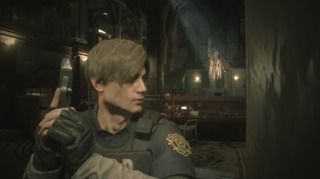
This really did feel like the year of genres I previously wasn’t interested in, but gave a chance with spectacular success. Not one for RE-brand survival horror, Abby Russell’s immensely entertaining playthrough inspired me to give it a try, and I’m glad I did: the fantastic graphics, streamlined gameplay, and relatively short campaign was a blast to go through, though I opted not to go through multiple playthroughs. The sometimes infuriating boss battles kept it away from the higher rankings, but what a fantastic remake to a game I previously found impenetrable.
Note: this game was responsible for just about the best Giant Bomb moment in history.
8. Deep Sea Adventure
There is nothing more satisfying than pulling a tiny game out of your pocket, taking three minutes to explain the rules, having it support up to six people, and having multiple games in a row because people don’t want to stop playing.
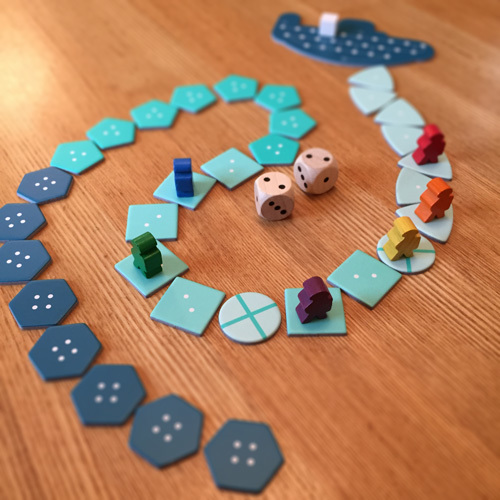
I normally dislike counter co-op games, where you play as a team but can double cross people at any time, because they’re incredibly hard to balance and make fun, but this is one of the few games that pull it off. In Deep Sea Adventure you go down a path using special dice that go up to three (so that your highest roll can go up to six), traversing down and picking up treasure if you so choose along the way. For each treasure you gain, on your turn, you lose one movement from your roll and one oxygen…and everyone shares the same oxygen supply. The further down you go, the better the treasure is, but the harder it is to get back up to the submarine before the oxygen is up. Three rounds ensure the games go quickly, and the potential for being a big ol’ jerk and sucking up valuable oxygen is always tempting- but don’t be surprised if someone beats you to it.
The game’s overly simple nature prevents it from being too deep (heh) and having the staying power of some of the best tabletop games, but no matter--it’s still a blast to play with experienced players and non-gamers alike.
7. Gran Turismo Sport
GT Sport was a colossal miscalculation at launch--taking the weakest element of the GT series (online) and centering a game around it? Introducing online game mechanics that penalize unsafe and sloppy driving, but not properly onboarding players with the basic fundamentals of the penalty system and how it works? I still enjoyed the driving tests and track time trials, but it felt like the end of an era. Gran Turismo was done.
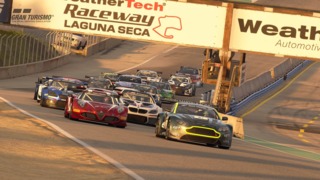
Do you ever think about what each generation does to a specific genre? Think about first person shooters for a minute, each gen having a blockbuster game that shows a shift in the design and landscape of shooters. DOOM, GoldenEye 64, Halo, Call of Duty 4, and now Fortnite--each game unique to their generation, changing how we look at shooters forever, or at least till the Next Big Game.
Racing games have a similar pattern: Super Mario Kart, Gran Turismo, Gran Turismo 3, Burnout, Forza Motorsport, Forza Horizon, Need for Speed, and if you want to get a bit looser with the racing term, Wipeout, Twisted Metal, I could go on. But oh how dire this generation has been for racing games! While Forza Horizon has had some interesting DLC directions with Hot Wheels and Lego, Forza Motorsport seems content with bi-annual updates of cars and tracks with each release, and…Driveclub? It has its defenders, but I’m sure not one of them, and Evolution Studios is gone.
Onrush? Hope you enjoyed it, because the studio was shut down too.
The Need for Speed series this gen? *sigh*
While we’ve had a number of PC sim racers making their way to console for the first time, some of the best racing games this gen had to be transplanted from previous generations (Crash Team Racing, Burnout Paradise, Wipeout) just to give us something to satiate our driving thirst.
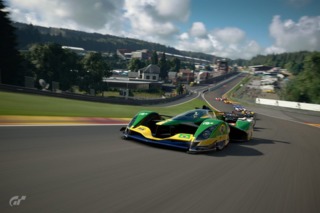
But something happened a few years after Gran Turismo Sport was released--it got bigger, and better, with monthly content updates and online racing improvements. The fundamental problems are still inherent to the design--after dozens of hours with the game I still don’t know what all the penalty flags mean--but the scope of the game has expanded to where you don’t even have to touch the online portion to enjoy the game. Tons of tracks and new single player content give the game a much needed boost of variety.
But it’s the style that keeps pulling me back, the monthly updates getting me excited to see the new cars in the showroom, the jazzy menu music playing in the background, the beautiful shine and attention to detail each car has that is stunningly showcased in the game’s photo mode. It is a game I don’t even have to play to enjoy every day (I’m listening to the soundtrack as I type this now, actually), and the online portion has grown to such a degree that the online racing community is unlike anything I have ever played. Racers trying to drive clean, to the point where they’ll drive off the road to avoid colliding with another player? People using their blinkers even! How is this even possible?
Despite the dire situation racing games have found themselves in this gen, Gran Turismo Sport has done at least one unique concept that could potentially change the landscape of racing games--the idea of clean online driving, realized--and it’s something I hope they can bring with them to the next generation, and inspire other games like the old classics have.
6. Escape the Room: Secret of Dr. Gravely’s Retreat
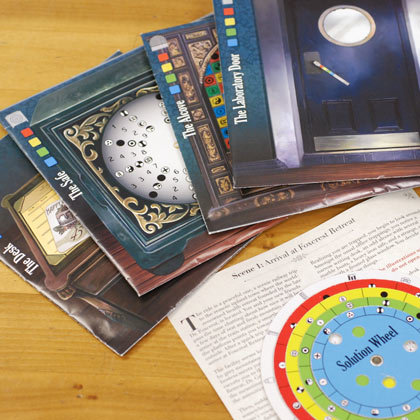
The worst part in talking about escape room games is that I have to be maddeningly vague, as half the enjoyment comes from the discoveries and puzzles, so I’ll keep this brief.
Escape the Room: Secret of Dr. Gravely’s Retreat is high on production values, with great art and some terrific puzzles, some that not even my two years of Boy Scouts had prepared me for (insert knowing nods from people who have played Secret of Dr. Gravely’s Retreat). Best of all, the game allows you to piece it back together to play with another group--handy since most escape room games force the player to tear and destroy components. I’ve played maybe ten escape rooms in a box, and this one was the best so far. A great option whether it’s your first escape room box or you’re a pro escape room master.
5. Battle Chef Brigade
This is such a wholesome game. I know that meme gets thrown around a lot, but honestly, there’s no other word to describe this game’s charm and story. When was the last time you saw a story about characters with no other motivations than trying to help each other be the happiest they can be? Maybe that’s not exactly correct, but that’s what I came away with after finishing the game--and in today’s hellish landscape, that seems downright alien.
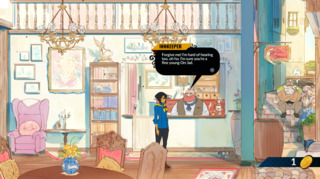
The gameplay is centered around matching orbs on a grid, and at some point I got better at it but never felt completely in control. The side game of having to actually kill your food and bring it back to the kitchen to cook never felt as good to me as the actual cooking of dishes, and I found myself wanting a more cooking-focused Battle Chef experience, but hey, my perception of cooking in games is maybe skewed just a tad.
Regardless, I had a fantastic time with BCB, and was sad when it was over. Hopefully one day I can check in on Mina Han and the gang in a sequel to see what they’re up to. Not many games make you feel that way about their characters.
4. Tokyo Highway
One of the best traits a tabletop game can have is attracting other people to a game in progress. What are you playing? What IS that game? I always tell people before playing Tokyo Highway that they’re going to want to take pictures of it before the game is over, and I never fail to see phones being pulled out halfway through to take shots of this unique city that we as a team built together. This, despite that fact that it’s a competitive game.
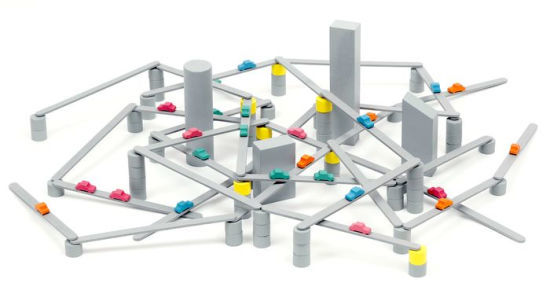
The basic idea is that you’re building your own highways, with your own set of colored cars, as you set them down above and below other people’s highways to gain more points in the form of cars to place on your highway. This game comes with its own set of tweezers, which everyone always laughs at when they first see it. At some point in every game I play, someone will sternly tell me, “hand me the tweezers."
I’ve been traveling a lot lately, and I always take this game with me. It’s a conversation starter, an ice breaker, a fun challenge, and its only real flaw is that the main rules for points are over-complicated (I didn’t realize I was assigning points wrong until my 15th game or so. It didn’t change the game’s dynamics at all.) This is the first game I’ve seen where, even when one person wins and the game is technically over, other players ask me if they can keep playing for second/third/last place.
3. QE (Qualitative Easing)
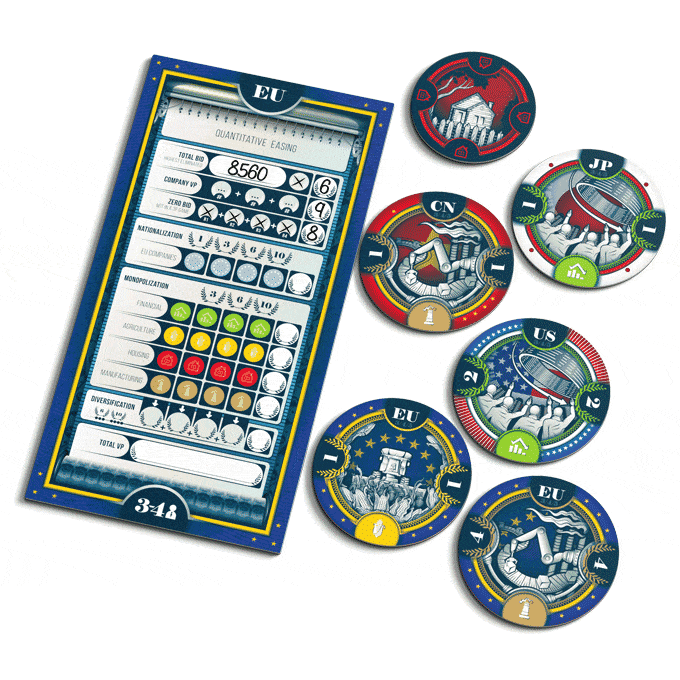
This might be the most ingenious tabletop game I’ve ever played. A game for 3-5 players, where each player represents a country, with their own blank check and dry erase marker, as players take turns being an auctioneer for a single property as they make the opening bid. The bid is, say, $1,000. Now the other players bid in secret to try and win (or bid zero if they don’t want the property). I could bid $2,000 and hope for the best. I could also bid one hundred trillion dollars and easily win the property, assuming no one bids one hundred trillion and one dollars or above. When a player wins an auction, we don’t know what they’ve bid other than the fact that it’s more than what we secretly wrote down.
How do you balance a game like this? What if I told you it was the most balanced game I’ve ever played? Because there is one final rule at the end of the game: whoever spent the most money immediately loses. The other players then determine who scored the most points for each of their properties.
There were games where, faced with a $100 opening bid, I secretly bid ten million. I still got outbid. How did he outbid me? And with WHAT AMOUNT? Now that I know he spent over ten million, I can comfortably spend ten million without being worried about being the highest spender. Or maybe I can increase that to eleven million, or fifteen. Inflation is rampant by the end of the game, and out of the eight games I’ve played I’ve never come close to winning. I love this game.
2. Death Stranding
Making games for a living has warped my tastes in games, and for a while this made me immensely depressed.
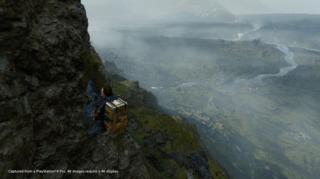
Gone are the days where I would get home from school with my bag of 3D Doritos and a Surge Slurpee, my gold cart edition of Ocarina of Time, and the entire weekend to just explore Hyrule. Gone are the times where I’d get immense satisfaction from just exploring the wilderness in Oblivion and finding a dungeon. It’s not that I don’t have time. It’s that the passion is gone.
When I have to make something in Game Maker Studio, let’s say a new food for my cooking game, I am faced with unlimited roads to get there. How do I code this burger while laying the foundation for more foods in the future? What’s the best way of doing this that’s fast, simple, but also easy to adapt to other things? What am I not even thinking of that I’ll need to watch out for in the future? It’s a creative energy that drives me, that makes game development fun, that makes me excited to make new things.
The problem is, when I work creatively for a living, the last thing I want to do is do more of that in the confines of games, or at least that’s my problem: I can’t make something in Dreams or Minecraft without feeling like it’s a complete waste of time. Why should I make this house in Dreams when I could be making an actual game, or finishing up some game components? They feel like one and the same.
I played about 30 minutes of Zelda: Breath of the Wild and Outer Wilds, and I can’t remember the last time I hated two games more. Hated every open-ended facet of it. Hated blasting off into space and not knowing where to go. Hated being able to go to the final boss in 30 minutes if I wanted to. I couldn’t delete them off my consoles fast enough. I don’t need to tell you that these are not bad games, it’s that I just need structure in my games now. I don’t need the added stress of open world game mechanics. As the years go by, I find myself more and more attracted to linear game experiences and the social experiences of tabletop games.
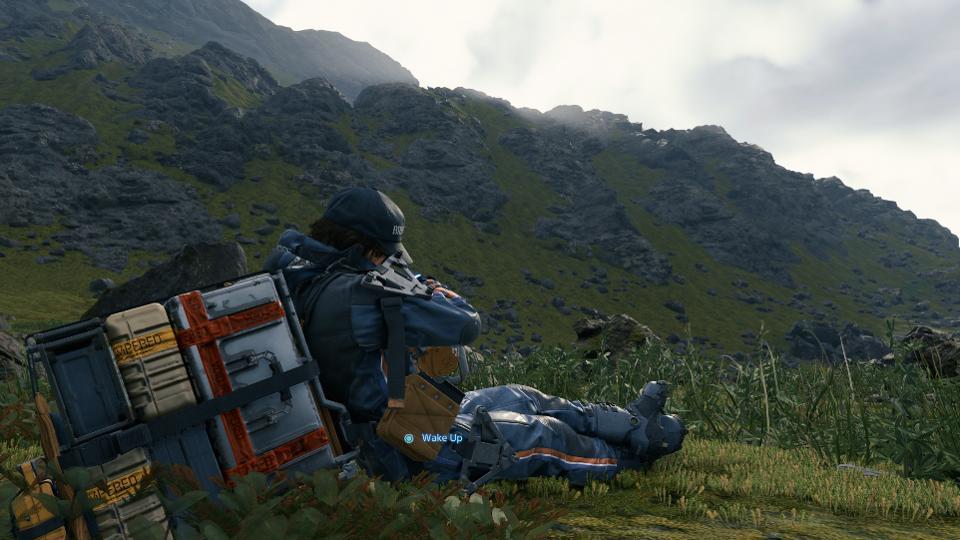
There’s no way to praise Death Stranding without insulting it in some way, so I’ll get right to the point: there is nothing about this game that is even worth sharing in terms of experiences. Last night I drove two hours on a highway and made several trips to deliver materials to build more of said highway. This is in service of being able to deliver other items to other people. It’s a very easy game. Once I got the first weapon, I could take on 20 of the game’s main bad guys without breaking a sweat. That’s a flaw to be sure, but I don’t want to bump up the difficulty to hard. I don’t mind getting the S ranking every time. I don’t mind that there’s no challenge, or that there’s hardly anything pushing back against me as I progress through the campaign. Go over here and deliver this package. Yes, sir. Hey, glad you made it, great job!! Thank you, sir. This game lavishes you with praise for doing nothing spectacularly difficult. On and on and on it goes. It feels good. I got 1,928 likes for a generator I built that other players used online. As far as I can tell that doesn’t do anything for me in-game other than make me feel good. Whoa, just like real life, am I right? That’s some deep stuff Mr. Hideo, said everyone involved in this game’s production I’d imagine. Hey, I’d rather have a game actively say something than play a game that pretends to say something while going out of their way to say nothing at all (the newest Modern Warfare with its fictional country comes to mind, or Ubisoft’s “we’re absolutely not saying anything political with our games” blanket policy).
Death Stranding is a vacation for the mind. It is one of my favorite games of the year, and I could never recommend it to anyone. That makes it all the more special to me.
1. Slay the Spire
I don’t play card battle games, both in the digital and tabletop space, but I do enjoy the occasional roguelike. Maybe that’s what caught my eye with Slay the Spire, a game where you choose one of three characters with their own decks and fight your way through a branching path of three levels, each with their own boss and elite enemies, interrupted by the occasional random merchant, story choice, and treasure chest.

There is skill in video games, and the illusion of skill. If I keep racking up chicken dinners, well, that means I’m a fantastic PUBG player, doesn’t it? If I can routinely get a Pac-Man kill screen, that makes me an expert Pac player, right?
You train yourself to know the secrets, the ins and outs, the levels, the guns, the curve of each corridor, when to eat that pac pellet, and everything you need to pit yourself against another player. And even then, you can sense their moves, what they might be going for, and plan against it, or in the case of Pac-Man, know exactly how the ghosts will choose their movements.
So how do you get good at a game that gives you random cards to build your deck with after each defeated enemy? Cards that are completely random, trinkets that alter gameplay in either a positive or negative way? If I were to get the exact right cards, I could plow through the entire game easily, every single time. My goal as a game designer would be to make sure that happens, oh, one out of a thousand times. But that makes for a skill-less game. How do you get good at a game like this? You don’t. Not in the same way you would a “normal” game, anyways.
The key to making a great game is to exploit a human’s need to rationalize, and to give them the illusion of choice. Hey, would you like this card? Heck no, that’s an awful card, I hate this game. How about the choice of three cards that are all equally bad, and the choice of not taking a card altogether? Now we’re talking. Because that’s another ingenious part of Slay the Spire: a lot of the cards are balanced fairly, but also dependent on other cards to make it work. You feel like you can MacGyver your way out of a situation. Some see ice skates on a desert island and see irony, others see an axe.
Slay the Spire is all about choice--choose which path you want, which cards you want from fallen enemies, which trinkets you want from bosses, which items to buy in the shop, what cards to erase from your deck, and so on. It’s this perception of choice that keeps me hooked, like a gambler with his last chip that always seems to earn just enough to make the next bet.
And so I choose my character, fight a number of enemies, have a nice humming deck, and then I’m killed at the level one boss. Why did I choose that card in my deck? I never used it and it filled valuable space! Again I go, level one complete, but then die to a pack of elite enemies. Why did I choose the path with elite enemies? Sure it gives me more loot, but I got greedy and died! And again I go, an early death this time that was entirely not my fault, but it happens. Again I go, further now, until I beat the last boss! Victory! Only that I find that you actually need to beat the final boss with all three characters, and after doing so unlocks the final, hidden boss.

And so again I go, up the Spire, defeating enemies, learning their attack patterns, failing over and over, getting farther and farther, unlocking new cards and trinkets, never quite getting the right deck. And again I go, barely limping past the first floor, shaking my head wondering why I’m still continuing with this run, only to get some clutch cards, beating enemies handily, making it past the second level, continuing to make sound decisions, slip up on the final boss, my confidence shaken, glimpsing the fourth level for the first time, and being annihilated by the bosses bodyguards. This game is impossible, how can anyone fight those guys?
And again I go, up the Spire, winning and losing but never making it quite past the bodyguards, until one day I get a deck that I never thought would bring me this far but has proven its worth against tough enemies, and I finally beat the bodyguards with half my health and no way to heal, until I get to the final, ultra mega boss when both the music and my adrenaline kicks in, knowing this might be my only shot, my satchel full of potions, which are immediately emptied upon a brutal first attack by the boss, as I carefully determine my options and play the right cards at the right time, as both our health bars tick lower and lower, again feeling like this literally might be my only chance to beat the game, dying right as the boss lands his final blow, my spirit destroyed, then reviving as I realize I had a fairy potion that gave me 5% health upon death, allowing me to do one last attack on the boss AND DEFEATING HIM as I jump out of my sofa, hands thrust high in the air, hands shaking, feeling like the best Slay the Spire player in the world, and remembering why I freaking love video games.